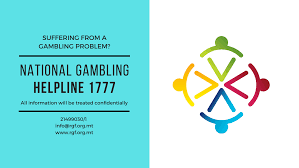PROMOTING RESPONSIBLE GAMING IN NIGERIA: IS ENOUGH BEING DONE?

Responsible gaming!
This is a really important topic, because with the rise of social media, increasing availability of internet services and smart phones; it has become evident that technology has changed the face of everything in Nigeria today, and the gambling and gaming industry is one of the sectors impacted the most by these advances.
Now there are different promotions advertising one form of gambling or the other, be it online casino, sportsbetting, lotto, iGaming etc on a regular basis. People can now play world lotteries online, in the comfort of their homes without having to travel out of the country.
Gambling has become more accessible to a whole lot more people than before (don’t forget, that gambling in all its forms, is the betting/staking of something of value with the hope of gain, on the outcome that is uncertain), which begs the question; is enough being done by the government and licensees, to promote positive play and responsible gambling amongst the consumers.
Is the Nigerian government at par with its contemporaries in other parts of the world in regards to the practice and promotion of responsible gaming or is all the focus on promulgating new legislation, licensing new gambling companies and chasing revenues from gaming operations; without adequate measures put in place, to minimize gambling harm.
The government has a responsibility to the consumers to make legislation (s) that will guide the country’s gaming regulator (NLRC) in developing programs and practices to support responsible gaming. There should be promotion of services aimed at encouraging players to maintain their gambling, at a healthy level in order to minimize harm to individuals and the community.
When new policies/legislation are proposed or made, All the focus should not be on just the expansion of the gaming industry; how the licensees’ business will operate and the huge revenues to be generated for the government or how the industry is a trillion-naira sector.
Efforts should rather be made by the regulator to ensure that its decision making and regulatory system, engender the confidence of the public to reduce any unintended harm that might come as a result of any new policy or legislation being proposed.
Sustainable and socially responsible approach to gambling should be promoted and encouraged, to make sure that any gambling related harm is minimized for the consumers, especially those who are at risk of developing problem gambling.

Aiming to build hospitals, schools, roads etc. are all good causes, but so all so is providing resources to create awareness, promote positive play, and provide access to self-management projects and help for responsible gambling.
Also increasing age participation and how much a person should be earning before they can participate in certain forms of gambling like Casino, should be considered.
More stringent measures on online gambling and operators who fail to conduct due diligence where necessary should also be made.
As reported somewhere else, the UK Gambling Commission slammed £3.8m fine a while ago on an operator for failing to carry out any meaningful responsible gambling interactions on consumers’ accounts.
Countries like Turks and Caicos in the Caribbean made it a rule that residents must be 21+ and earn at least $75,000 a year before they can participate in casino gambling etc.
There are sites like www.gambleaware.nsw.gov.au/, www.gov.bc.ca/ etc. which represent other governments’ initiatives; to point people in the right direction, teach consumers about gambling and help those worried about their gambling or those already experiencing problem gambling.

The Government, the Gaming Industry, the Media even the Consumers themselves should all strive to take part in ensuring that any harm caused (intended or not) by any form of gambling is effectively reduced.
The Government through its gaming regulating agency (ies) should utilize principles of responsible gaming when introducing all new and emerging technologies to the public; promote best responsible gaming practices in all aspects of its gaming licensees’ activities in the industry.
If possible, the government should form a Responsible Gaming Committee that will comprise of members from different leadership positions in the country, and equally strive to create programs and initiatives aimed at minimizing the effects of gambling harm in individuals, families and inadvertently the communities, while still fulfilling its obligations to the nation (generating revenues through taxation for good causes) and to the licensees (creating an enabling environment for profitability).
The gaming licensees themselves should endeavor to provide accurate and balanced information to the consumers, in order to promote positive play. A shared understanding of responsible gaming practices, which will benefit not just the industry as a whole but the government as well, should be created.
They should also ensure responsible marketing that will refrain from targeting the young and the vulnerable; manage and conduct due diligence on high-risk transactions in their operations and once in a while engage the communities and introduce them to the CSR (corporate social responsibility) they are involved in.
This will go a long way to remind people that there is a lot more to play for, than just winning a prize. All reasonable steps should also be taken to ensure that statutory underage persons are not permitted to participate in gambling of any form.
The licensees and the government should endeavor to provide trainings on responsible gaming for their employees and ensure that the necessary level of awareness relating to responsible gaming is maintained in all Organizations.
It will also go a long way if provisions are made for help lines, centers etc. that will provide resources for those in need of assistance from problem gambling.
Information distributing measures should also be put in place to provide needed information for consumers to make positive gambling decisions.

Most importantly, advertisements and promotions should be delivered in a way and manner that promote positive play and showcase gambling help resources; this can be done by integrating responsible gaming messages into marketing materials.
Conclusion
Licensees should refrain from suggesting in their adverts that winning or losing a game, is more or less than what it actually is, and should also make no false or misleading claims in order to entice players.
People should not be encouraged to play beyond their means and chances of winning should never be exaggerated.
More should be done to sensitize people and discourage excessive and irresponsible play.







Great post and right to the point. I am not sure if this is really the best place to ask but do you people have
any thoughts on where to get some professional writers?
Thanks 🙂 Escape room lista